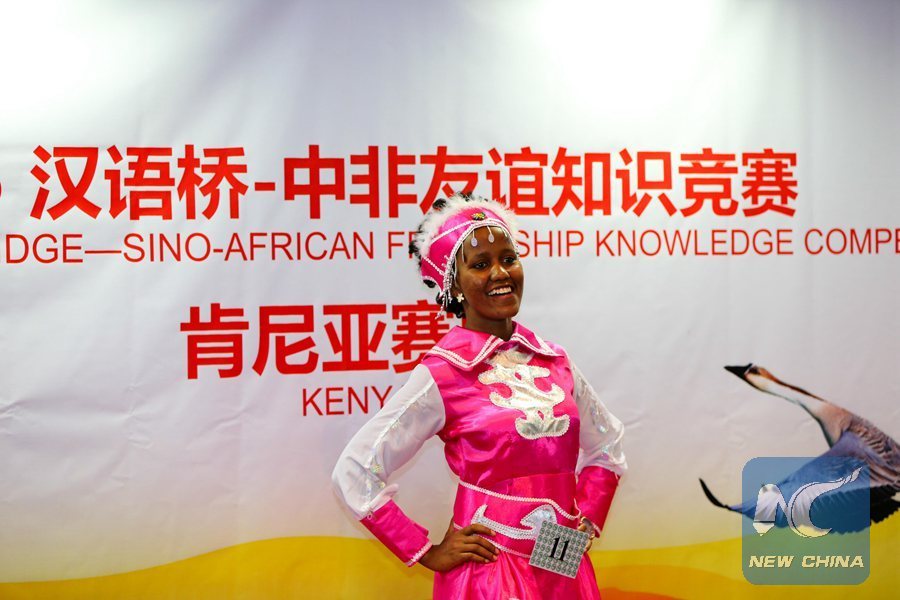
A Kenyan student performs Chinese dance at the Sino-African Friendship Knowledge Competition, in the Confucius Institute at the University of Nairobi, Kenya, on Oct. 14, 2015. (Xihua/Pan Siwei)
MAPUTO, May 20 (Xinhua) -- Since the first Confucius Institute was established in 2004 at the University of Nairobi, Kenya, more and more African students have picked up Chinese language studies amid ever strengthening China-Africa ties, said Ma Jianfei, Deputy Chief Executive of Confucius Institute Headquarters.
In an interview with Xinhua in Mozambique's capital city Maputo earlier this week, Ma said in response to the rapidly growing demand for Chinese language studies in Africa, a total of 54 Confucius Institutes have been established across Africa, with some countries having more than one.
In 2017 alone, the number of registered students at Confucius Institutes and Confucius Classrooms in Africa hit 149,171, representing an average annual growth of 36 percent since 2012, according to data from the Headquarters.
Meanwhile, the institutes in Africa provided 854 scholarships to African students in 2017, representing an annual average growth of 37 percent since 2012.
"In recent years, especially since Chinese President Xi Jinping visited Africa in 2013, the Confucius Institutes have developed rapidly in Africa and a significantly growing number of Africans are learning Chinese," Ma said.
Ma said that 14 African countries, including Egypt, Cape Verde and South Africa, have adopted Chinese language lessons as part of their national curriculum, while 21 Confucius Institutes in Africa offer degree courses in Chinese language at universities.
Apart from language lessons, Ma said Confucius Institutes have trained over 1,200 local teachers in Africa to teach Chinese since 2004. Meanwhile, the institutes also seek to provide some vocational training programs and Chinese culture courses such as martial arts and traditional Chinese medicine for students, Ma said.
He said that the Confucius Institutes have also been cooperating with government departments in African countries. For instance, there are Chinese training classes for Kenya's customs officials, and South African police.
At the opening ceremony of the joint conference of the Confucius Institutes in Africa held on May 14 in Maputo, China's top legislator Li Zhanshu, during his visit to the southern African country on May 12-15, said that the Confucius Institutes not only belong to China, but also belong to the world.
Li, chairman of the Standing Committee of the National People's Congress, said he hopes the Confucius Institutes in Africa will always focus on China-Africa friendship, knowledge sharing and cultural exchanges. He also urged the Confucius Institutes to introduce Africa to more Chinese people while promoting China's culture and telling China's true stories in Africa, as a messenger for China-Africa cultural exchanges.

